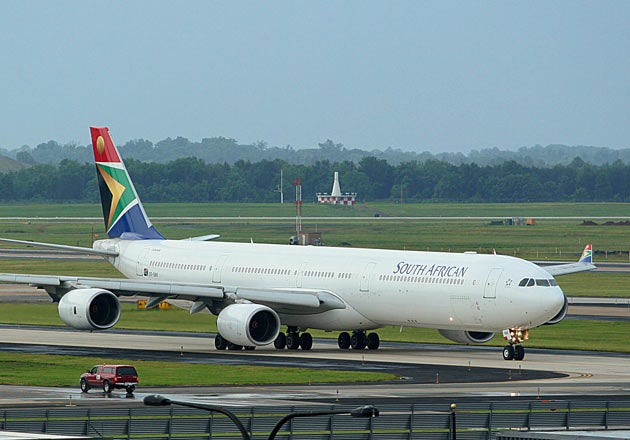Football's carbon footprint comes under fire

Next year's World Cup in South Africa will have a carbon footprint nine times greater than the previous competition.
The 2010 tournament is expected to generate a carbon footprint of 2.75 million tonnes – one of the biggest created by a sporting event in history. It would be more than double that of the 1.18 million tonnes at the Beijing Olympics, and nine times greater than the World Cup held in Germany in 2006 won by Italy.
About 67 per cent of the total is expected to come from the long-haul flights required to access the southern tip of the African continent, and a further 18 per cent from the flights that may be necessary between the six locations inside South Africa where the early matches are taking place.
National football teams, and even their fans, should offset the carbon emissions involved in travelling, UN officials said yesterday at the Climate Conference in Copenhagen.
All 32 countries involved in the tournament have been asked by the UN to compensate for the CO2 emissions that will be generated by flying their squads of players and officials thousands of miles to Cape Town and Johannesburg.
It is the beginning of a close look by the UN Environment Programme (UNEP) into the emissions involved in high-travel sport. UNEP officials said yesterday they were also looking at the environmental effects of travel in international cricket.
As of yesterday, three nations, Uruguay, Korea and Serbia, had committed to "football offsetting" while the others – including England – were said to be "considering" the idea. But last night a spokesman for the Department of Energy and Climate Change said: "We have spoken to the office of Lord Triesman [chairman of the Football Association] and they have confirmed that the FA always offsets its flights."
Officials from UNEP have calculated approximate figures for what supporters' trips to the World Cup might cost in greenhouse gas emissions from aircraft, as well as what it might cost to purchase offsetting certificates that represent emissions that have been saved through green energy projects.
A cohort of 12,700 fans flying from Britain would travel more than 232 million kilometres in total, generating more than 53,000 tonnes of CO2, which could be offset at a cost of just over $1m – which works out at about £25 per flight.
Achim Steiner, the executive director of UNEP who put the idea forward at the Copenhagen conference yesterday, said he was not suggesting that fans should not travel to the World Cup.
"A World Cup without fans would be a very sad day indeed," he said. "But every airline today offers a way of offsetting. You can make yourself part of the solution, then you won't be part of the problem."
Rather than buying credits from commercial offsetting companies – sometimes seen as a con – teams will be invited to purchase their carbon credits from energy projects, such as solar water heating for poor families, which the South African government is setting up.
Join our commenting forum
Join thought-provoking conversations, follow other Independent readers and see their replies
Comments
Bookmark popover
Removed from bookmarks